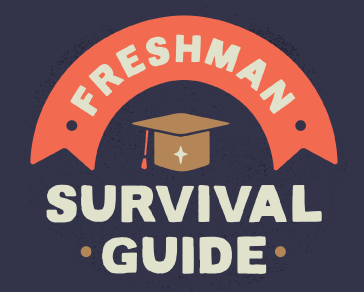Pittsburgh Post Gazette: Navigating the college experience
Fa-la-la-la-la-la tis the season. Everyone is going back to school and most of you are going to college. Whether you are going to college out of state, transferring, or commuting college is a HUGE step in your life. Most people are leaving home for the first time and it can be kind of intimidating. I […]
Over 185,000 Copies Sold!

February 1, 2024 With over 185,000 copies sold, The Freshman Survival Guide has become America’s go-to guide for dealing with the difficult transition to college life while keeping the whole student–mind, body and spirit–in mind. The book–featured on The Late Show with David Letterman–spends numerous weeks each spring as Amazon’s #1 book in both the student […]
Freshman Survival Guide Teams Up with The Milton Hershey School

The Freshman Survival Guide is pleased to have The Milton Hershey School’s (MHS) Graduate Programs for Success (GPS) come on board as part of our Interactive RA team. Founded in 1909, by Hershey Chocolate founder Milton Hershey and his wife, Catherine, MHS is a private philanthropic (pre-K through 12) boarding school. The school currently serves […]
We’re looking for a few good RAs
The Freshman Survival Guide’s Interactive RA? Soon after arriving on campus, many freshmen realize they need real help in making a smooth transition to college life. In researching The Freshman Survival Guide, it became clear that some students didn’t feel comfortable approaching their local resident assistant on staff for any number of reasons (e.g. their […]
We’re looking for a few good RAs
Soon after arriving on campus, many freshmen realize they need real help in making a smooth transition to college life. In researching The Freshman Survival Guide, it became clear that some students didn’t feel comfortable approaching their local resident assistant on staff for any number of reasons (e.g. their issues felt too personal and they were embarrassed, they were afraid of getting in trouble, they simply didn’t like their RA etc). While we believe it is best for students, in general, to avail themselves of their local support staff, we also realized that it could be helpful for some students to have the option of contacting an experienced RA anonymously with some of their more delicate issues. The Interactive RA (iRA) is our attempt to bridge that gap.
Suggested exercises for using the book–Developed for LaSalle University’s New Explorer Program
Some Suggested Exercises for Using The Freshman Survival Guide Developed for LaSalle University’s New Explorer Program 1. Get involved …but Not Too Involved (Ch. 16) -Service contest: “On a smaller campus (or in a smaller department) you may want to choose activities that are entirely apart from your major so that you’re meeting different kinds […]
The iRA (Interactive RA) blog is here!
The iRA blog is a similar supplement to the advice in The Freshman Survival Guide. Our team of iRAs will be updating the blog regularly by posting important tips and insights from their own experiences as well as answering your questions.
